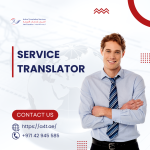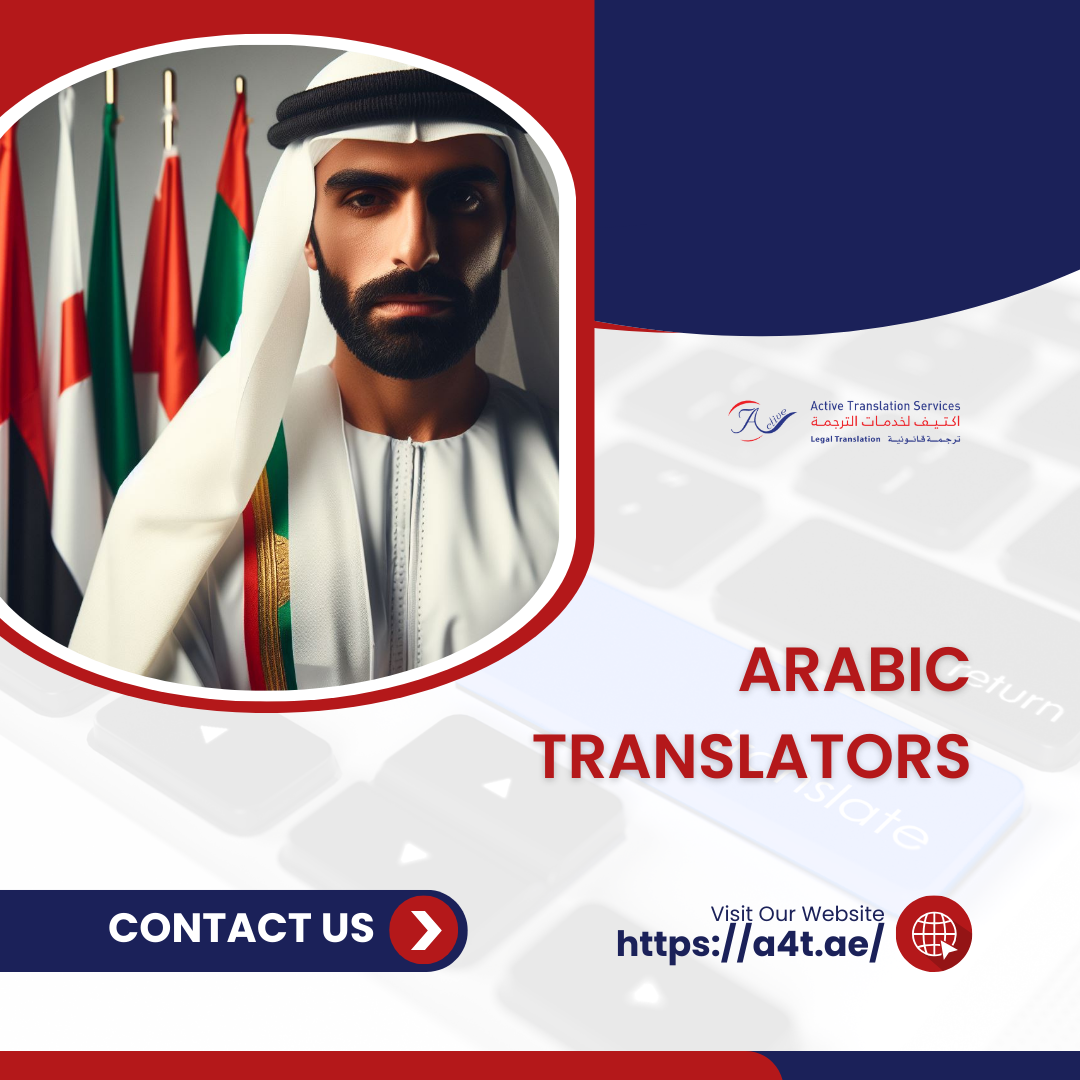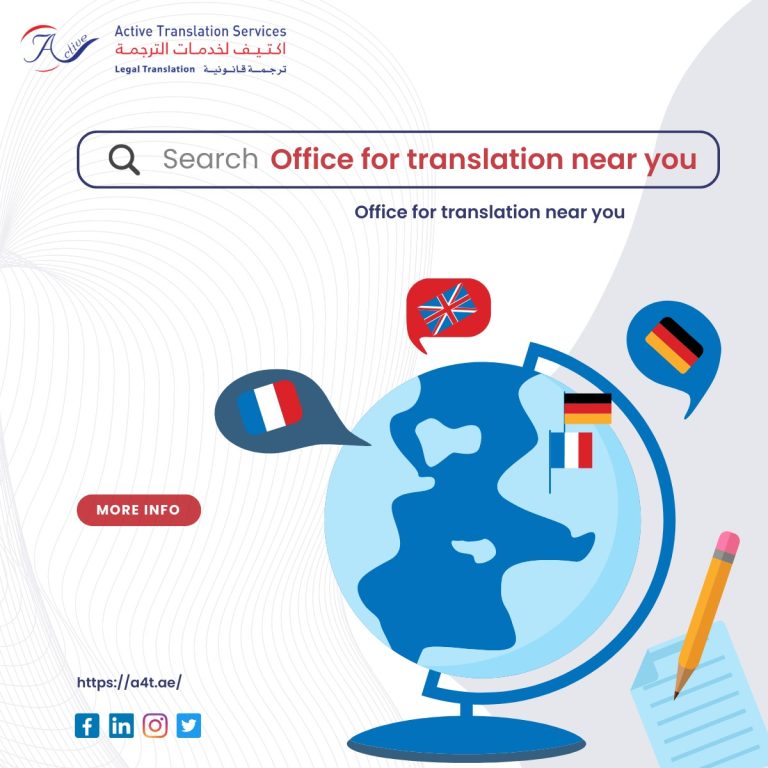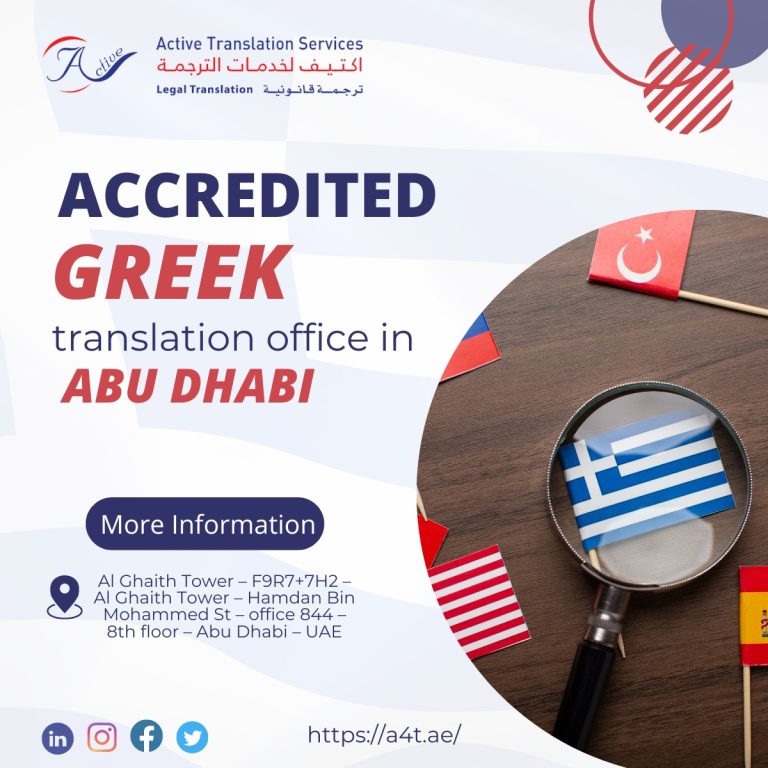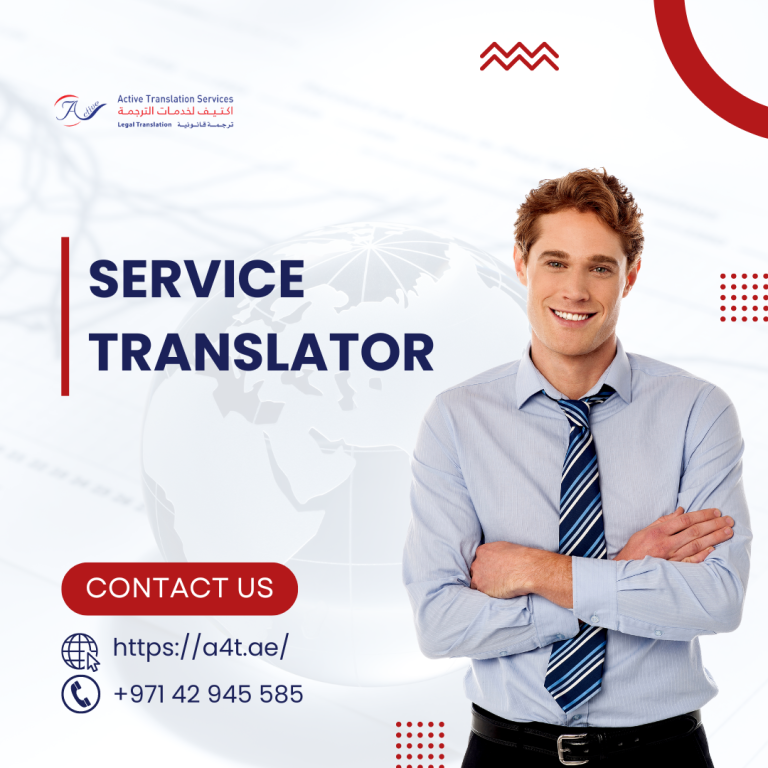Arabic, with its rich history and widespread usage, is a language of great significance. As globalization continues to connect people and cultures, the demand for Arabic translators has grown exponentially. This article explores the role of Arabic translators, their importance in bridging language and cultural gaps, the skills required to be an effective Arabic translator, and the avenues available to find professional Arabic translation services.
The Role and Importance of Arabic Translators
1.1 Language Mediators
Arabic translators serve as language mediators, facilitating communication between Arabic-speaking individuals and those who speak other languages. They play a crucial role in bridging language barriers and ensuring effective understanding in various contexts such as business, diplomacy, academia, and cultural exchanges.
1.2 Cultural Ambassadors
Arabic translators not only translate words but also convey cultural nuances and context. They act as cultural ambassadors, interpreting idioms, customs, and social norms to ensure accurate and culturally appropriate communication. This role is particularly important in promoting intercultural understanding and fostering positive relationships between Arabic-speaking communities and others.
1.3 Preserving Linguistic Heritage
Arabic translators contribute to the preservation of the Arabic language and its rich heritage. By accurately translating texts into different languages, they enable the dissemination of Arabic literature, religious texts, poetry, and historical documents, thereby ensuring the longevity and accessibility of this invaluable linguistic and cultural legacy.
Skills and Qualities of Effective Arabic Translators
2.1 Bilingual Proficiency
Proficiency in both Arabic and the target language(s) is the foundation of effective Arabic translation. Translators must possess native or near-native fluency in Arabic to fully grasp the subtleties, nuances, and idiomatic expressions of the language. Additionally, they should have a strong command of the target language to accurately convey meaning and style.
2.2 Cultural Competence
Arabic translators must have a deep understanding of the cultural aspects associated with the language. This includes knowledge of Arab traditions, customs, history, and social dynamics. Cultural competence allows translators to navigate sensitive topics, adapt translations to cultural contexts, and ensure accurate and culturally appropriate communication.
2.3 Subject Matter Expertise
To provide accurate translations, Arabic translators often specialize in specific subject areas such as legal, medical, technical, or literary translation. Expertise in these fields enhances their ability to understand complex terminology, maintain consistency, and convey specialized knowledge accurately.
2.4 Strong Research and Writing Skills
Arabic translators must possess excellent research skills to stay updated with language trends and terminology. They should be adept at finding reliable resources, consulting dictionaries, and verifying information. Additionally, strong writing skills are essential to produce translations that are clear, concise, and stylistically appropriate.
Finding Professional Arabic Translation Services
3.1 Translation Agencies
Translation agencies are a reliable source for finding professional Arabic translators. These agencies often have a team of qualified translators specializing in various fields. They provide comprehensive translation services, ensuring quality, accuracy, and timely delivery.
3.2 Professional Associations and Networks
Professional associations and networks, such as the American Translators Association (ATA) or local translator guilds, can connect individuals with certified Arabic translators. These organizations often have directories or referral systems to help individuals find qualified translators who specialize in Arabic translation.
3.3 Online Platforms and Freelancers
Online platforms and freelance marketplaces offer a wide range of Arabic translators. These platforms allow users to browse profiles, review ratings and reviews, and directly communicate with translators. It is essential to thoroughly assess the qualifications, experience, and expertise of freelancers before making a selection.
3.4 Recommendations and Referrals
Seeking recommendations and referrals from colleagues, friends, or professionals who have previously utilized Arabic translation services can be highly beneficial. Personal referrals provide firsthand insights into the quality, reliability, and professionalism of Arabic translators and can help in making an informed decision.
The Growing Demand for Arabic Translators
4.1 Global Business and Trade
The expanding global business landscape has created a demand for Arabic translators to facilitate communication and enhance business relations between Arabic-speaking countries and the rest of the world. Translators enable companies to overcome language barriers, negotiate contracts, develop marketing materials, and cater to diverse markets.
4.2 Diplomatic and Political Interactions
In diplomatic and political contexts, Arabic translators play a vital role in facilitating negotiations, interpreting speeches, and translating official documents. They enable effective communication between Arabic-speaking nations and international entities, ensuring accurate understanding and fostering diplomatic relations.
4.3 Academic and Research Collaboration
Academic institutions and research organizations often require Arabic translators to facilitate collaborations, translate academic papers, and support language-related research projects. Translators contribute to the exchange of knowledge and ideas across borders, fostering international academic cooperation.
4.4 Cultural and Media Industries
The cultural and media industries rely on Arabic translators to translate literature, films, television shows, and online content. Translators make these cultural products accessible to wider audiences by ensuring accurate and culturally sensitive translations. This promotes cultural exchange, multiculturalism, and a deeper understanding of Arabic culture.
Challenges faced by Arabic translators in their work
Linguistic Complexity:
Arabic is a rich and complex language with unique grammar, syntax, and linguistic structures. Translators must navigate intricate sentence constructions, verb forms, and the use of pronouns. The Arabic language also employs contextual meaning, making it essential for translators to capture the intended message accurately.
Variations and Dialects:
Arabic has numerous regional dialects, each with its own nuances and vocabulary. Translators may face challenges in choosing the appropriate dialect to use for a specific target audience. They need to consider the context and target readership to ensure that the translation is culturally and linguistically appropriate.
Cultural Nuances and Context:
Arabic translations often require conveying cultural nuances, idiomatic expressions, and social customs. Translators must be knowledgeable about the cultural background of both the source and target languages to accurately convey the intended meaning. Failure to capture these nuances can lead to misunderstandings or misinterpretations.
Lack of Equivalents:
Some Arabic words or expressions may not have direct equivalents in other languages. Translators face the challenge of finding suitable alternatives or providing explanations to convey the intended meaning effectively. This requires creativity and adaptability in finding equivalent expressions or rephrasing the text without losing its essence.
Technical Terminology:
Arabic translations in specialized fields such as legal, medical, or technical require familiarity with specialized terminology. Translators need to have a deep understanding of the subject matter and stay updated with the latest terminology to ensure accurate and precise translations in these domains.
Right-to-Left Script:
Arabic is written from right to left, which poses challenges when translating into languages that follow a left-to-right writing system. Translators need to adapt the text layout, directionality, and formatting to ensure readability and maintain the original structure of the document.
Time Constraints and Deadline Pressure:
Translators often face tight deadlines, particularly in fast-paced industries or urgent projects. Balancing accuracy and quality with meeting tight timelines can be challenging, requiring efficient time management and prioritization skills.
Translator’s Bias:
Translators must remain objective and unbiased, even when dealing with sensitive or controversial topics. It can be challenging to separate personal opinions or cultural biases from the translation, especially when translating content that conflicts with their own values or beliefs.
Evolving Language and Neologisms:
Like any living language, Arabic continues to evolve with new words, expressions, and neologisms emerging regularly. Translators must stay updated with language trends and changes to ensure their translations reflect current usage and remain relevant.
Overcoming these challenges requires a combination of language proficiency, cultural knowledge, subject matter expertise, continuous learning, and effective communication with clients and stakeholders. Certified sworn translator need to develop strategies to tackle these obstacles and deliver accurate and culturally appropriate translations.
Conclusion
Arabic translators play a crucial role in bridging language and cultural gaps in our globalized world. They serve as language mediators, cultural ambassadors, and guardians of linguistic heritage. Effective Arabic translators possess bilingual proficiency, cultural competence, subject matter expertise, and strong research and writing skills. To find professional Arabic translation services, individuals can explore translation agencies, professional associations, online platforms, and rely on recommendations. The growing demand for Arabic translators is driven by global business, diplomatic interactions, academic collaborations, and the cultural and media industries. By embracing the talents of Arabic translators, we can foster understanding, communication, and appreciation for the Arabic language and culture.




